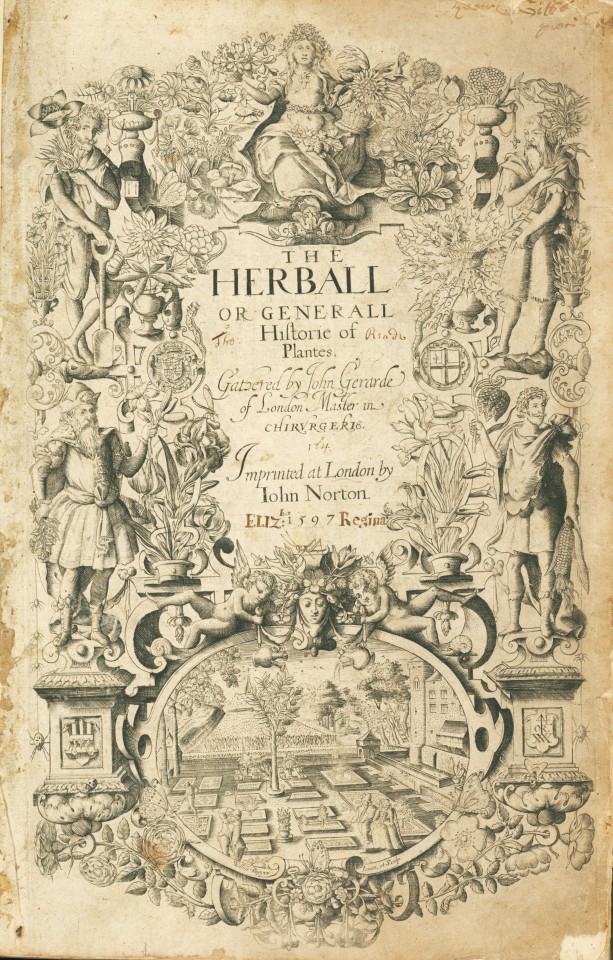A very large 1867 Map of the Country Twelve Miles Round London.
How Jeff Tweedy had his “come to Agnetha, Björn, Benny and Anni-Frid” moment. I don’t think I’m ever gonna like “Dancing Queen.” But Jeff is so so right about this: “It feels really good to stop hating something. And music is a good place to start. Because while records don’t change over time, we can and do. Better late than never.”
beyond belief
Last month I published a piece over at the Hog Blog on biblical and theological illiteracy among scholars — basically a summary of some recent work by Tim Larsen. I thought I had noted a few distressing examples there … but wow, did I just have a you-ain’t-seen-nuthin’-yet moment.
This review in the WSJ of a new book on the hymn “Amazing Grace” set my spidey-sense a-tingling — or rather, one passage from it did. I’ve been on the wrong end of reviewers’ careless dispensing of misinformation, so when I read this:
Mr. Walvin is compelling in his description of the deep presence of “Amazing Grace” in Anglophone, especially American, culture. He is less persuasive in some of his theological observations: I find it vanishingly unlikely that the famous 19th-century evangelist Dwight Moody “portrayed Christ himself as a sinner . . . with whom armies of ordinary people could identify.” The 18th-century Church of England did not consist of a “Latin-based priesthood” conducting “impenetrable Latin-based worship” — that had been decisively seen off 200 years earlier.
— I thought, That can’t be right. The author, James Walvin — a pretty eminent historian (primarily of The Atlantic slave trade) from the University of York — simply can’t have said those things. But lo and behold, here he is describing the D. L. Moody and Ira Sankey revival meetings in England:
Their down-to-earth style filled the largest of city venues wherever they appeared. They held 285 such meetings in London alone. Theirs was a style which, inevitably, was heartily disliked by the more solemn corners of British worship. When Ira Sankey performed in the parish church in the small Derbyshire town of Chapel-en-le-Frith, one parishioner was so outraged that he thought the local bishop “will have something to say” to the curate who had invited him.
Throughout, Moody portrayed Christ himself as a sinner, a person with whom armies of ordinary people could identify. If Christ could be saved, so too could the humble and ordinary people in the audience. Salvation was there for all. This simple, seductive point, a potent message for the poor in the late nineteenth century, was exactly what John Newton himself had pressed home, in his letters and hymns a century before. Salvation was available to all who repented.
And about Latin in the Church of England? Yep:
Throughout his teenage years at sea, John Newton had been an avid reader, buying books wherever he landed and struggling with the religious principles imparted by his devout mother. Elizabeth Newton had instilled in her son a highly disciplined love of reading — and worship. She read Bible stories to him, teaching him to respond to the catechisms and to memorize hymns and psalms, especially those written for children. Elizabeth loved the hymns of Isaac Watts and her son inevitably followed. They were hymns noted for their simplicity, using ordinary, comprehensible language and were quite unlike the impenetrable Latin-based worship of the Church of England at that time. Watts's hymns were an aspect of the ongoing Reformation that wrenched worship free from an exclusive, Latin-based priesthood and relocated it among ordinary people, simply by using the common vernacular.
A few comments, typed with quivering hands:
- The reviewer, Priscilla M. Jensen, calls these “theological observations,” but they are no such thing: they are historical statements that are catastrophically, outrageously wrong — the equivalent of saying that Benjamin Franklin was a Buddhist and that Frederick Douglass was a native speaker of French. They are so wrong, and wrong about facts so elementary, that I couldn’t possibly trust one word of Walvin’s book. Nor should any of you.
- If Walvin thinks that “Christ could be saved,” by whom might that be accomplished? If Jesus Christ is one of the saved, who is the Savior? Perhaps Walvin could reflect on that name “Christ” — does he think that it’s Jesus’s surname, and that especially respectful people would refer to him as Mr. Christ?
- If “throughout” his evangelistic sermons D. L. Moody called Mr. Christ a sinner, I would love to see just one example of it. But there isn’t one. It is not, as Jensen said, “vanishingly unlikely,” it is impossible. Moody’s entire theology — like that of every other orthodox Christian — was completely governed by his belief that, as the letter to the Hebrews says, “We have not an high priest which cannot be touched with the feeling of our infirmities; but was in all points tempted like as we are, yet without sin.”
- James Walvin appears to be a Briton, in any case has certainly lived a number of years in Great Britain, and moreover has received a doctorate in history. How can he not know that the English prayer book was composed, issued, and mandated — with the Latin Mass correspondingly forbidden — nearly two hundred years before John Newton’s birth?
- As Tim Larsen noted in the essay that got me onto this subject, “It takes a village” to disseminate ignorance this gross: James Walvin wrote the sentences I have quoted, but no peer reviewer noticed anything wrong, no editor, no copy editor — not one person in the whole complex process at the University of California Press knew enough even to question the claim that an evangelical preacher regularly proclaimed that Jesus Christ is a sinner, or that the average Church of England parish in the eighteenth century featured priests mumbling prayers in Latin. Never at any point was it thought necessary to have a manuscript on an English Christian hymn looked at by someone with an elementary knowledge of English Christianity.
- Finally: Why — why, oh why, oh why — do people (scholars especially!) insist on writing books on subjects that they cannot be bothered to learn the basic facts about? Write on something you’re sufficiently interested in to learn about, for heaven’s sake!
P.S. People often ask, “Don’t these presses have fact-checkers?” No. No, they don’t. Many magazines have fact-checkers — the ones at Harper’s, for instance, work me like a dog to justify my every claim — but publishing companies, even academic presses, typically don’t. They hope that their copy-editors — almost always freelancers — will catch howlers, but that’s about it. Certain kinds of books, biographies for instance, will get read by lawyers, but that’s not about avoiding statements that are wrong, that’s about avoiding statements that are actionable. (When I was writing my biography of C. S. Lewis a lawyer-reader flagged a comment I made about Charles Williams’s habit of asking pretty young women to sit on his lap so that his eros could be transformed miraculously into agape — Might Williams take exception to this statement, I was asked. I replied that, since he died in 1945, I didn’t think it likely.)
A Generall Historie of Plantes should probably be a large book.

The “rewiring of childhood” and the parents who are enabling it — even when they know they really shouldn’t.
ignorance, vincible and invincible
[Jonathan Haidt:] ‘TikTok and Twitter are incredibly dangerous for our democracy. I’d say they’re incompatible with the kind of liberal democracy that we’ve developed over the last few hundred years.’ He’s quite emphatic about all of this, almost evangelical. Which makes me think of his 2012 book, The Righteous Mind, in which he argued about the danger of getting too caught up in your own bubble, believing your own spin. Might he be guilty of that here? Might it just be the case, I ask, that there’s less of a stigma around mental health now, so teenagers are far more likely to admit that they have problems?
‘But why is it, then, that right around 2013 all these girls suddenly start checking into psychiatric inpatient units? Or suicide – they’re making many more suicide attempts. The level of self-harm goes up by 200 or 300 per cent, especially for the younger girls aged ten to 14. So no, the idea that it’s just a change in self-report doesn’t hold any water because we see very much the same curves, at the same time, for behaviour. Suicide, certainly, is not a self-report variable. This is real. This is the biggest mental health crisis in all of known history for kids.’
People are absolutely desperate to believe that this isn’t true, but as Jean M. Twenge shows, the alternative explanations are getting less defensible by the day.
One oddity of this: People used to worry desperately about boys being immersed in gaming, but it turns out that gaming is not as bad for young minds as social media, and therefore boys are not being as thoroughly traumatized as girls. The smartphone era is bad for boys, but it’s nightmarish for girls.
My guess is that parents who continue to provide smartphones for their kids are, epistemically speaking, indistinguishable from those who declare that the 2020 Presidential election was stolen from Donald Trump. They cannot now back down; they have made themselves invincibly ignorant. Their sunk costs are just too great for them to consider evidence. They’ll keep doing what they’re doing, no matter the suffering their children undergo.
Now, these people are not invincibly ignorant in the proper sense of that term: The truly invincibly ignorant are not culpable because they cannot remedy their ignorance. I am using, and perhaps abusing, the term by employing it to describe parents for whom the admission of tragic error is psychologically impossible.
It’s noteworthy, I think, that in his current and forthcoming work Haidt links the smartphone plague with helicopter parenting: the very same parents who fret ceaselessly about their children’s safety, and prevent them from achieving independence, also put those kids in the way of certain dangers by tethering them to social media. Worse and worse!
But: Lenore Skenazy, of Free Range Kids fame/notoreity/infamy, writes on Haidt’s Substack about a new study demonstrating … well, you can put it two different ways. You can say that while parents accept that their kids need to be more independent, their actions don’t reflect that acceptance: they just keep on helicoptering and snowplowing. But today I choose to put the point more hopefully: Though most of them cannot yet break themselves of what they know to be very bad habits — they can’t summon the courage to take away their kids’ smartphones or let them walk to the local library by themselves — at least they know these habits are bad. Which is the necessary first step, after all. Maybe if I meditate on that I’ll become less despairing.
P.S. On the other hand, I’m reading stories about how A.I. + social media = guys using their phones to make deepfake porn videos featuring their female classmates, so maybe parents who don’t take their kids’ smartphones and smash them to pieces should be sent to prison for, like, fifty years.
Malcolm Gladwell thinks the disposable diaper is a “perfect innovation.” Maybe he should think again. Best essay about diapers I’ve ever read.
Mann's Joseph: 2
Joseph, unlike his ancestors, delights in the gods of the gentes: he knows their names and attributes. He thinks about them, he plays in his mind with those names and attributes; he can’t help himself. When Jacob comes upon his son in nude contemplation he thinks Joseph is “blowing kisses to the stars,” which the lad denies, but in a flood of verbiage — he is an incessant chatterbox and will one day pay mightily for it — that takes him right back into danger. He soon finds himself describing the worship of the Mesopotamian moon-god Sin, whose “day of festive contemplation,” Shapattu, is coming soon, and recalls that the moon does not shine on its own, no, we know that “He made it to shine” and —
“Who?” Jacob asked softly. “Who made it shine?”
“Marduk-Baal!” Joseph cried all too hastily, but followed this at once with a long, drawn-out “Aeh-h-h-h,” shaking his head to undo it, and now continued, “… as He is called in the old tales. It is, however — as my dear papa has no need to learn from his poor child — the Lord of the gods, who is stronger than all the Annunaki and Baals of other nations, the god of Abraham, who defeated the dragon and created the threefold world.” (76)
Joseph is this, if not consciously and intentionally polytheistic, imaginatively so; moreover, he is, even when speaking conciliatory words to his father, not a strict monotheist but rather a henotheist — which suggests that that he thinks this may be acceptable to his father. (Mann is surely aware of the passages in the Hebrew Bible that sound henotheistic, for instance Psalm 95:3: “For the LORD is a great God, and a great King above all gods.”) But we readers know that it is not so acceptable. In this very chapter Mann describes a conversation Jacob had on just this subject with a man named Jebshe:
If the God who had established the sun, the signs along its path, and the planets, including the earth, was the highest God, then he was also the only god, and it would be best not even to speak of other gods, in such a case, otherwise one would be forced to label them with the name Jacob had refrain from using, precisely because reason demanded that the term and concept of “the highest God” be equated with the only God. [56]
Jacob is horrified by any suggestion that the gods of the gentes are to be treated with anything but contempt and revulsion, and Joseph has to employ his best and most charming eloquence to calm his father’s troubled spirit. (It is, fortunately for him, a task he is always up to.)
So this opening scene of the story-as-such establishes this tension between the single-minded devotion of Jacob to the Fear and Joseph’s playful delight in contemplating the religions of the gentes. It wouldn’t be right to say that Joseph simply is polytheistic. But he is inclined to enjoy correspondences and to seek whenever possible a reconciliation of opposing forces. The tetralogy as a whole is called Joseph and His Brothers, but I think in a more fundamental sense it’s about Joseph and his father. It explores the difference between a radical uncompromising monotheism and a more … flexible approach to matters of faith.
Robin Sloan pitches his forthcoming novel: “The year is 13777. There are dragons on the moon.”
Mann's Joseph: 1
There’s a long Prelude to the tetralogy — called “Descent into Hell” — which I may discuss later on. After the Prelude we enter the first of the four parts of the tetralogy, The Stories of Jacob. And while the main character of this book is (theoretically) Jacob, we don’t get his story in chronological order: we begin with a scene between Jacob and Joseph, his teenage son — indeed, we see Joseph before we see his father. This scene strikes certain notes which then resonate, sometimes harmoniously and sometimes discordantly, throughout the rest of the tetralogy.
The first substantive thing that we learn about Joseph is that he is widely and deeply aware of the religious practices of what the Israelites called the nations, the peoples that surround his little familial world. (“Nations” = Latin gentes = our word “gentiles.”) He sits, at evening, in a contemplative pose, and intently contemplates the moon. Or does he worship the moon? Moreover, the whole scene takes place under the influence, one might even say the patronage, of the goddess Ishtar, who gives her name to the first section of this first chapter. (Here, as is traditional, she is associated with the planet Venus.) Mann also tells us that there is something indefinably Egyptian about Joseph’s appearance.
Above I wrote of “Israelites,” but really there are no Israelites yet, just the family of the man born as Jacob and later re-named Israel — Yiśrā’ēl, “strives with God.” He is the son of Isaac, who is the son of Abraham; so we are just three generations into this new adventure in human history — and, Mann says, a new adventure in the life of God. For one of the points that he makes at several points in the story is that Abraham was the man who invented God.
Mann doesn’t think that Jacob is literally the grandson of Abraham — he believes that many generations separate them — but he accepts that Jacob is in some … other sense Abraham’s grandson. Mann has a notion, often referred to in the narrative, that certain personalities recur generation after generation: people as it were imagine themselves into the lives of their ancestors, so that they become their own ancestors: they inhabit the stories they have inherited. So for instance, when Jacob comes upon the contemplative Joseph, the boy is naked, and Jacob tells him put to put some clothes on — and as he does he finds himself recalling the mirror image of his experience, the moment when Noah’s sons saw his nakedness, and Jacob fells that he is in some way entering into that story, a story he had been told by his father and grandfather. That’s what happens, in this narrative, to old stories: through inhabitation they are revivified, generation after generation. (This is the beginning of typology.)
So Abraham learned certain essential stories which he then passed them down to his descendants, one of whom is Jacob. And the central story is that of Abraham himself having been called from his old life by God, a God who is jealous and singular — so much so that Abraham, reflecting on his encounters with this strange disembodied presence, comes to think that he is not encountered merely another god among the many gods, but Something more extreme, Something that can’t be classed with anything else. And this is the sense in which Abraham invents God: he discovers — or imagines; Mann allows the reader to judge, though he sometimes hints that this God really does exist, though perhaps only because Abraham imagined Him — a universal Deity, the Creator of all things visible and invisible, Lord of all the nations, even the nations who do not recognize him. That’s the God Abraham invented, and that’s the God that that Jacob has inherited, and Jacob is fierce in his monotheism. He thinks always of his God and imitates Him. “El-Elyon’s choice and preference of some individuals, absent, or at least beyond, any merit on their part was absolute and splendid; by any human measure, it was hard to comprehend and unjust, a sublime emotional reality that was not to be quibbled with, but to be honored with trembling and rapture in the dust. And Jacob, himself aware – though in all humility and fear — that he was the object of such favor, imitated God by existing exuberantly on his own predilection and giving it free rein” (63).
But Joseph doesn’t think this way. Joseph is, as I said earlier, highly aware of the gods of the peoples whom the children of Abraham regularly encounter. The children of Abraham, these herdsman and wanderers, don’t occupy the cities where the gentes dwell, with their temples and priests. They may visit such places to trade goods, but they don’t live there. They live, rather, in the places between, in the fields and on the hills. They take their herds with them wherever they go, and when their herds flourish, they become people of real substance. They buy and trade, and that become substantial figures in the economy of their world, but they remain always nomadic, and have no need for a city, a city with a temple in the midst of it and statues of God to bow down before. The God they worship, and whose voice in the fields and on the hills they can hear, is the one who has called them out of a dead life and has accompanied them; is also the one with whom Jacob wrestled on the banks of a river. He is the Fear (Gen. 31:42). But Joseph may not be as fearful as his ancestors.
RSS access is the only thing that makes reading Substack newsletters tolerable for me. If I had to go to their site, with its combination of the most annoying features of Facebook and Twitter, I’d just unsubscribe from everything.
I wrote about Francis Spufford’s utterly wonderful new novel Cahokia Jazz.
greetings from Cahokia

Among the novels written in the 21st century that I have read, my favorite is Francis Spufford’s Cahokia Jazz. (I’m going to call the author “Francis” because he is a dear friend – I’ll say more about this later – so calling him by his surname rings false to me.) But the concept of “favorite” is not an easy one to explain. I do not mean to say that I believe Cahokia Jazz to be the best even of Francis’s novels. I could, if lightly pressed, make a case for the superiority of Light Perpetual, which is a glorious and deeply moving book. But I am not pressed, and can say what I want, and what I want to say is this: I adore Cahokia Jazz, and I hope you will read it and adore it too. It’s available in the U.K. right now and will appear here in the U.S.A. early next year.
Why do I delight in this story so much? Well, for one thing, it participates in a genre that I am especially fond of, the Alternate History Novel. I first fell in love with that kind of story when I was around fifteen and read Keith Roberts’s Pavane, a book I’ve never quite gotten over. Soon afterwards I read Philip K. Dick’s The Man in the High Castle and my attachment to the genre was fixed forever. What do I love so much about this kind of story? I suppose it’s the unannounced and waiting-to-be-noticed alternation between the known and the unknown, between world-as-it-is and world-as-might-have-been. You’re reading along, well-placed in a familiar history, and then something happens that you know did not happen. Or: you begin reading a story that seems to be set altogether otherwhere, and then something is mentioned that connects to the familiar, the established. I can’t explain it, but I love the frisson that happens when two histories brush against each other. I love not quite knowing how to understand the relation between those two histories, the long puzzle of figuring out the Same and the Different.
When I first read Cahokia Jazz I had an experience that you, dear reader, will not have. I’ll take an example from the first page of the book:
Barrow stepped carefully back towards the little hutch holding the door to the stairs. There was already a mess underfoot. As he expected, the uniform who’d called them in, from the phone down in the lobby, was waiting only a few steps down, on the narrow flight winding round the top of the elevator shaft. Just behind him was the night cleaner who’d found the door unlocked originally. She’d gone out onto the roof, and then run screaming onto Creekside to flag down the patrolman. Neither of them looked what you’d call avid. The cleaner, a heavyset taklousa in her forties, had her mouth clamped shut to hold in shock or nausea. The patroller, only twenty or so, was doing the classic takouma stone face – the set pose for male strength when something bad happened. He’d been out to the skylight too. Not rubberneckers, not spectators. Yet there they still were, keeping close; commanded somehow by the presence of death, compelled to wait attendance where it had visited. It took death repeated over and over, in Barrow’s experience, death repeated in quantities too great for meaning, to wear that solemnity away. It took a war. Soldiers could learn to just walk on by in the presence of death, not many other people.Even from this you’ll probably get that this is a murder scene, that the story is (at least in part) a police procedural. (And that our protagonist is a former soldier.) But you don’t know what a taklousa is, or a takouma.
Neither did I, when I began the story – but then, what I got was the naked and unadorned first chapter. The events of Cahokia Jazz take place over six days: the book begins on a Monday and ends on a Saturday. And Francis sent me the story one day at a time, with some weeks or months intervening between my experience of one day and the next. Because I was utterly absorbed in the story from the first page, I found this both exhilarating and anxiety-producing: like Dickens’s American readers in 1841, wondering whether Little Nell would survive the next installment, I waited desperately at the quay of my Gmail inbox, holding my breath in anticipation of the next Day of the story.
Nothing in what Francis sent me told me what a taklousa is, or a takouma, or for that matter a takata (mentioned for the first time on page 7); nor are we told what it means for someone to be addressed as tastanagi, or what a, or the, tamaha is. I had to figure all this out out as I went along, which I loved doing – and so, long-experienced in the publishing world as I am, I wrote to Francis to say Your editors will demand a glossary, you must refuse to provide or even allow a glossary. Thanks be to God, there’s no glossary in the book … but there is a brief explanatory note at the beginning, between the map and the first chapter, and while it’s handled with skill and grace I encourage you to skip over it if you can. It deprives you of a pleasure. (Editors – I suppose this must be their job – always think in terms of the less active and committed kind of reader, the one who needs some hand-holding. Sometimes reviewers of my books complain that I have made something too explicit, and I always want to say The editors made me do it, dummy.)
So: I’d love for all of you to read this book while knowing no more than I knew when I read it. But if you need, or just want, to know more, well, further info is coming after the break.
Still here? Okay, so: Alternate-history novels grow from What-Ifs. Here are the relevant ones for Cahokia Jazz:
What if the variety of smallpox that Europeans brought to the New World was a less deadly one than the one that devastated a continent? (There are less deadly ones.) What if as a result a large Native American population survived colonization? What if a common trade pidgin of the American colonial era – to be specific, the Mobilian trade jargon – became a full-fledged language, capable of serving as a binding agent for the many takouma – um, I mean, Native American – cultures of the American South and Southwest? And what if as a result the old abandoned city of Cahokia was rebuilt into a great modern city, populated by several varying ethnicities, dominating its region so that you get moments like this:
They left him in the village of St. Louis, which was a church, a gas station and a general store, clustered under dripping oak trees. There was a sign, put up by the state historical society, saying the place had been founded by a French settler in 16-something. It didn’t seem to have grown much since.I love stuff like that.
Francis has commented on some of his key concerns — and some of his key challenges in writing this story — over at Goodreads:
- The Matter of America
- Imaginary Architecture for Imaginary Cities
- On Having a Map — and yes, the maps in Cahokia Jazz really are wonderful.
One tiny example, drawing on one of the several delightful cameos in the book. At one point, late in the story, our hero is at Cahokia’s railway station and happens to see a family, “pale, shabby-grand, and relocating with their life’s possessions” – including, curiously enough, butterfly nets: “white Russians on their way to Kodiak, by the look of it.” One of them, “a lanky twenty-something in flannels and tennis shoes,” is called by his family Vovka, and he briefly assists our hero. Then off they go, leaving our story as abruptly as they had arrived in it. Assuming that they made their way to Kodiak – or, more formally, as our map tells us, NOVAYA SIBIRSKAYA TERRITORII – it is unlikely that their world ever knew Lolita or Pale Fire. But what might they, in their timeline inaccessible to us, possess instead? This we do not know. About this we are free to imagine.
I’ll have more to say later, more especially about the story as a story, which I found both enthralling and touching. But first I need to do some Thomas Mann while his story of Joseph is fresh in my mind. For now, I just wanted to make sure all y’all know about this wonderful book.
I’m a big fan of the rooftop lounge at the Austin Central Library.



